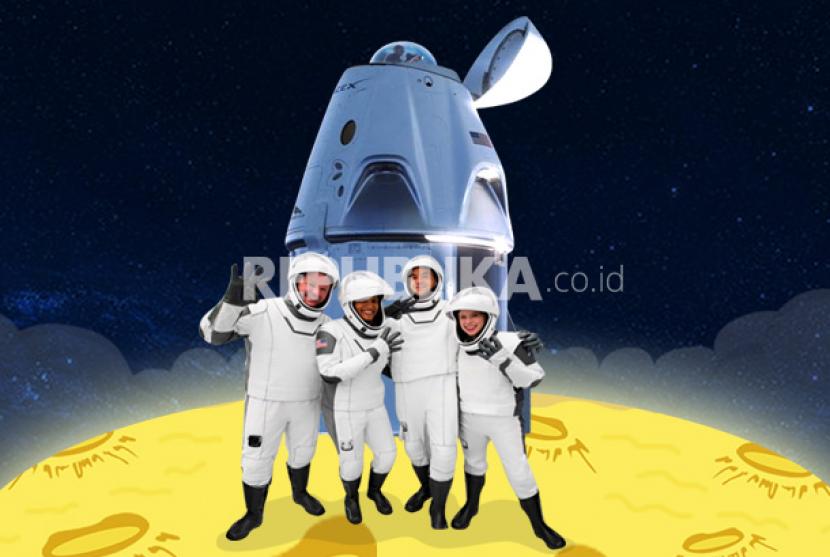The effects of space anemia are only felt when landing back on Earth.
REPUBLIKA.CO.ID, JAKARTA — The world’s first study reveals how travel to space can cause a low number of human red blood cells. This phenomenon is known as anemia outer space.
According to an analysis of 14 astronauts, their bodies destroyed 54 percent more red blood cells in space than normal on Earth. The results of his study were published in the journal Nature Medicine.
“Space anemia has consistently been reported when astronauts return to Earth since space mission first, but we don’t know why it happened,” said the study’s lead author, Dr Guy Trudel Times Now News, Wednesday (19/1/2022).
According to Trudel, his studies show that after arriving in space, many red blood cells are destroyed. This state continues throughout the mission astronaut walk.
Prior to this study, space anemia was thought to be a rapid adaptation to the fluid that moves into astronauts’ upper bodies when they first arrive in space. Astronauts would lose 10 percent of the fluid in their veins this way.
Astronauts were originally expected to rapidly destroy 10 percent of their red blood cells to restore balance. Red blood cell control returns to normal after 10 days in space.
In contrast, Dr Trudel’s team found that the destruction of red blood cells was the main effect of being in space, not just the movement of fluids. They demonstrated this by directly measuring the destruction of red blood cells in 14 astronauts during a six-month space mission.
On Earth, the human body makes and destroys two million red blood cells every second. The researchers found that astronauts destroyed 54 percent more red blood cells during their six months in space, or three million every second.
These results were the same for the female and male astronauts. In Dr Trudel’s laboratory at the University of Ottawa, Canada, the team was able to precisely measure the tiny amount of carbon monoxide in breath samples from the astronauts.
One molecule of carbon monoxide is produced each time a molecule of heme, the dark red pigment in red blood cells, is destroyed. Although the team did not measure red blood cell production directly, they assumed that the astronauts produced extra red blood cells to compensate for the cells they destroyed.
– .


